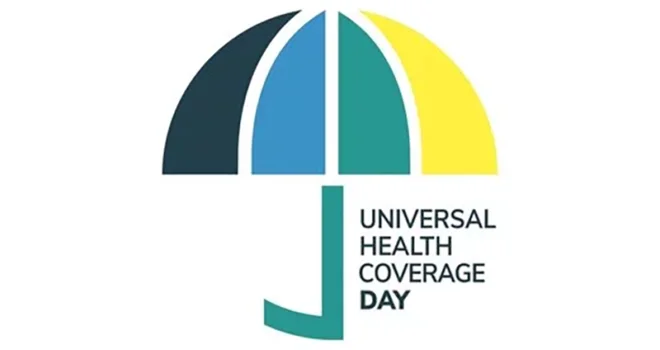WHF is the only CVD organization in official relations with the WHO. This special status not only allows us to make statements representing the interests of our Members at meetings of the governing bodies, but also necessitates a formal shared workplan and close working relationship. This unique relationship with the WHO allows us to position key CVD issues within the global health agenda. A major point on this agenda is Universal Health Coverage, or UHC.
What is Universal Health Coverage?
Universal Health Coverage, often referred to by the acronym UHC, means that all people have access to the health services they need, when and where they need them, without financial hardship. It includes the full range of essential health services, from health promotion to prevention, treatment, rehabilitation, and palliative care.
Currently, at least half of the people in the world do not receive the health services they need. About 100 million people are pushed into extreme poverty each year because of out-of-pocket spending on health.
Where UHC is absent and healthcare is predominately financed through out-of-pocket payments, acute CVD services—because they are especially expensive—produce remarkable negative economic consequences for households.
The economics of chronic CVD are also noteworthy and relevant to UHC. Because chronic CVD and its risk factors are often asymptomatic or minimally symptomatic, and because primary and secondary prevention are lifelong interventions, financial barriers can weigh heavily on the decision to engage in care and adhere to medications. For more information on CVD within the context of UHC, see this article.
UHC as a WHF Advocacy Priority
The WHF Advocacy Strategy covering the years 2019-2021 identifies the following as General Objective 1:
Promote and support the reduction of risk factors for CVDs and their underlying determinants as an investment towards the SDGs and UHC objectives in cross-cutting policy areas.
Over the past decade, UHC has emerged as a major policy goal at the global level. Yet despite the high burden of CVD, relatively little is known about how to address CVD through UHC. In addition, CVD-related interventions remain chronically underfunded. The WHO “best buys” for NCDs show governments the most cost-effective and feasible interventions for protecting health, making populations more productive, saving on healthcare costs, and — when implementing taxes on tobacco, sugary drinks, and alcohol — generating revenues that can be ploughed back into financing UHC. Working towards our specific objectives within the framework of UHC provides a key opening for engagement with government and institutions at the global level.
UN High-Level Meeting on Universal Health Coverage
On 23 September 2019 a high-level meeting on universal health coverage was held at the United Nations General Assembly. At the meeting, ‘Universal Health Coverage: Moving Together to Build a Healthier World’, world leaders adopted the first United Nations Political Declaration on Universal Health Coverage. The Declaration is a result of months of debate and compromise, and while its contents cannot be considered perfect, the document represents the most comprehensive set of health commitments ever adopted at this level, providing a framework for action on UHC.
WHF took advantage of this historic opportunity to host a discussion with Ministries of Finance on fiscal policies for health and financing UHC at its first official side-event within UN headquarters. While other organizations repeated calls for better engagement with financial policymakers just outside the door, WHF was walking the talk, bringing Ministers of Finance from Ukraine and Barbados to the same table with the Norwegian Minister of Health and representatives of the global health community.
Following the High-Level meeting, WHF continues to promote dialogue with leading policymakers within Ministries of Finance at other high-level fora, such as the World Economic Forum and World Bank Group Spring Meeting. We are also working to roll out tools and capacity-building workshops for our Members to drive the push for UHC at the national level around the world.
Latest News
World Universal Health Coverage Day: Bridging the gap between commitments and action for cardiovascular health
Thursday 12 December 2024 marks seven years since World Universal Health Coverage Day was established, in recognition of the importance of strong, resilient health systems to ensure access to health services for all. The term Universal Health Coverage expresses into words the powerful goal of tackling health inequalities, which continue to be deeply rooted within […]
Universal Health Coverage
Strategy for strengthening the essential public health functions to accelerate health systems transformation 2024-2034
This statement was delivered by Ms. Fernanda de Carvalho, our Advocacy Committee member for PAHO, at the Seventy-Sixth Session of the WHO Regional Committee for the Americas SEVENTY-SIXTH SESSION OF THE REGIONAL COMMITTEE FOR THE AMERICAS AGENDA ITEM 4.6 Honourable Chair, Distinguished Delegates, The World Heart Federation commends the World Health Organization and its […]
Universal Health Coverage
Exploring strategies for achieving Universal Health Coverage at EB154
This is a statement made at the WHO Executive Board Meeting (EB154) on Agenda Item 6 by the World Heart Federation on behalf of the Global Alliance for Tobacco Control, International Diabetes Federation, International Society of Nephrology, World Hypertension League, and World Stroke Organization. While we welcome the WHO and Member States’ recommitment to achieving UHC […]
Universal Health Coverage
Cardiovascular health and Universal Health Coverage: Towards a healthier, more equitable world
Despite major reductions, cardiovascular disease (CVD) continues to be the world’s number one killer, representing over one-third of all causes of mortality globally. Eighty percent of these deaths occur in low- and middle-income countries (LMICs) where the mortality burden is predicted to rise even further. Universal Health Coverage (UHC) Day serves as an annual reminder […]
Universal Health Coverage


